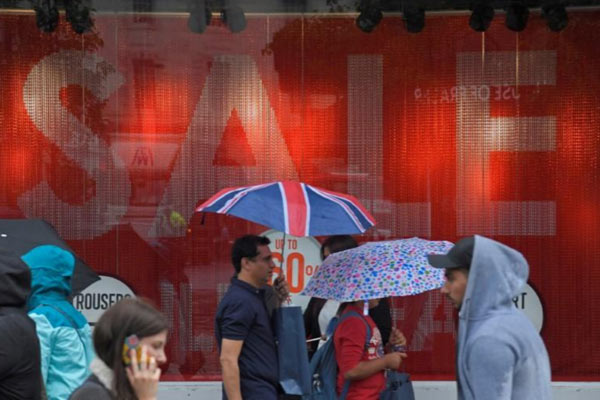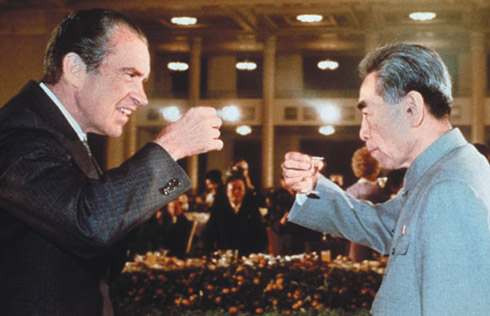UK shoppers cut spending by most in more than four years
 |
|
Shoppers walk past a sale sign in central London, Britain June 27, 2017. [Photo/Agencies] |
LONDON - British shoppers reined in their spending by the most in more than four years in October, according to a survey by payments company Visa which added to other signs that the squeeze on incomes is hitting the high street.
Consumer spending - adjusted for inflation and seasonal effects - fell by 2.0 percent in October compared with the same month last year, Visa said, based on its credit and debit card data. It was the fifth fall in the last six months.
In monthly terms, spending was down 0.9 percent from September.
"The figures are a stark indicator of the strain on household budgets even before the Bank of England’s recent interest rate rise," Mark Antipof, Visa's chief commercial officer, said.
The BoE last week increased its benchmark borrowing rate to 0.50 percent from 0.25 percent, despite many private economists warning that high inflation and weak wage growth was already squeezing household spending hard.
A survey published on Monday showed British employers expect to raise pay for their workers only a little despite strong demand for staff and already low unemployment.
Visa said clothing and footwear suffered the biggest fall in October, down an annual 9 percent, as warm weather put shoppers off buying winter clothes. Falls were also seen in other key areas of spending such as on food and drink and recreation and culture which until recently was growing strongly.
Visa said November's so-called Black Friday and Cyber Monday sales would provide a clearer sign of how the Christmas season was shaping up.
The weak data from Visa echoed other surveys which have pointed to a sharp slowdown in spending in October.
Economists polled by Reuters expect official retail sales data, due to be published on Thursday, will show the sharpest fall since March 2013, when Britain’s economy was just starting to emerge from its post-financial crisis lethargy.





















